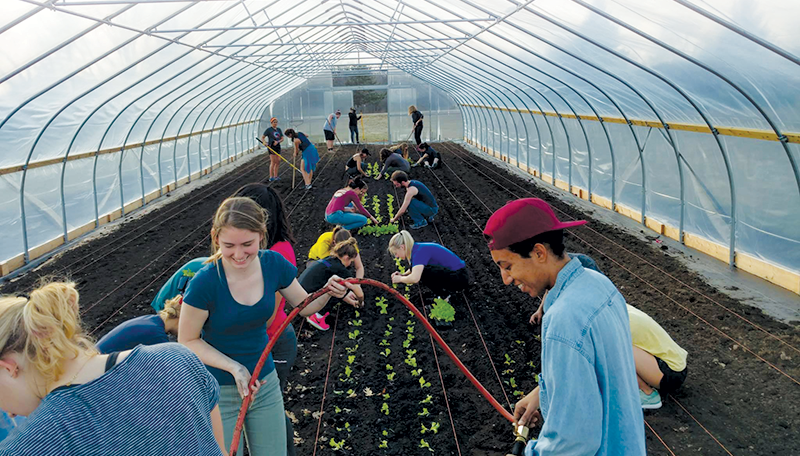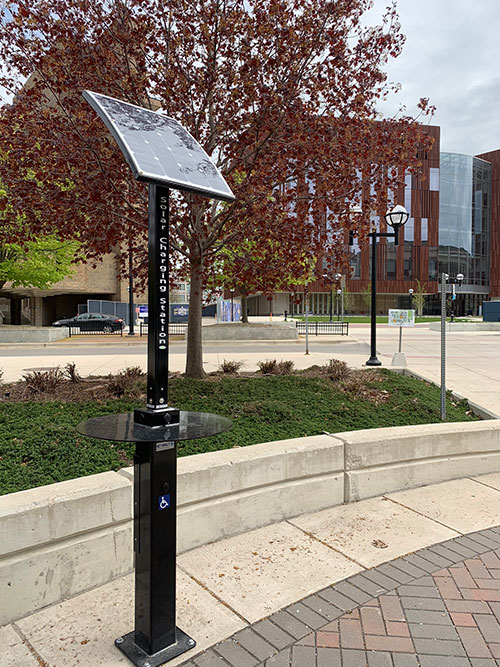
Are you a student or faculty or staff member interested in implementing a sustainability project on campus? You’ve come to the right place!
The University of Michigan experience is more than lectures and classrooms. U-M recognizes the importance of fostering living-learning lab opportunities on campus. These opportunities provide a chance to expand learning experiences outside of the classroom through “real world” lessons associated with developing and managing sustainability projects.
It is a faculty, staff, or student-initiated undertaking designed to support the university’s sustainability goals. Many sustainability projects involve temporary infrastructure installations or operational adjustments.
The Office of Campus Sustainability (OCS) is responsible for assisting the U-M community with this type of project. We developed this guide to help you plan and implement a sustainability project for the Ann Arbor campus.
In some cases, working directly with one of our partners is a better place to start. Check out this info for projects related to MDining and contact Keith Soster ([email protected]). For projects related to Student Life, please contact Alex Bryan ([email protected]).
If your project requires input from Facilities and Operations, please work with OCS. As a public institution, U-M is responsible for ensuring that our campus meets or exceeds all relevant construction, environmental, and safety regulations. Often, this means unanticipated steps in your project. We can improve your success and minimize delays by advising you and connecting you with the proper Facilities and Operations staff necessary to approve and install infrastructure on campus. We recommend contacting Ken Keeler ([email protected]) early in the development phase.
Institutional Support
Projects require support or sponsorship from a university department. This sponsor will accept long-term ownership and financial responsibility of the project and be responsible for maintenance, upkeep, disposal, and site restoration while ensuring that any equipment continues to meet regulatory obligations. OCS may be able to introduce you to potential sponsors or may be able to take on this role.
Many student groups work directly with the support and mentorship of U-M faculty and/or staff. This can be beneficial as these mentors may have the ability to communicate with building facility managers and school deans whose support is often necessary to gain approval for installation of projects in, on, or around a facility.
Administrative/leadership approval may be required depending on the nature of the project. OCS will assist in determining if administrative/leadership approval is required and recommend a path forward. Leadership could include the Provost’s Office, deans, and others.
Project Funding
To obtain approval to move forward with a sustainability project, an adequate funding source must be secured. See “Funding Opportunities” in the right sidebar for a couple of possibilities.
Please refer to U-M Procurement Buying Methods when considering purchases associated with your project.
Location Approval
The Campus Planning Office within Architecture, Engineering and Construction (AEC) is responsible for managing how university property is used. They may be able to assist with finding a suitable location, or if you have a preferred location in mind, they can determine whether or not that space is available and what plans may exist for the location. The Campus Planning Office has final approval over exterior space use.
Engineering Feasibility Study
A detailed feasibility study conducted via AEC may be required to determine the viability of the project. Funding for the study is the responsibility of the project sponsor.
Based on feasibility study results and project complexity, AEC may need to be involved in managing project design and construction activities.
Exterior Elements Review Committee (EERC) Approval
If your project will affect the exterior of buildings, any aspect of the university grounds, or an interior public lobby of a building, it must be approved by the EERC, which is advisory to Campus Planning.
We can help you determine whether your project requires EERC review. If so, you must submit a project proposal. Here’s more info on EERC guidelines and procedures.
Project Proposal for EERC
We can assist you in preparing a comprehensive project proposal, which includes:
Short description of the proposed structure(s)/equipment, with intended use and desired message
What is required for an installation site in order of importance, including criteria such as:
Given the site requirements, are there specific sites already in mind?
How long will it take to reach the point of installation, what is the expected installation duration, and is the project a demonstration project or pilot program?
Who will deliver/install/remove and will additional technical assistance be required?
A department or unit willing to be responsible for upkeep, eventual disposal of the unit, and site restoration.
Describe any special disposal needs, such as recyclability or regulated disposal issues, and anticipated site restoration.
Vendor specs, energy requirements, size, emissions, safety considerations, pictures, etc.
U-M is committed to instilling a university-wide culture of sustainability. Sustainability projects provide an opportunity for our campus community to experience and learn about sustainability issues such as energy conservation, greenhouse gas reduction, and waste reduction.
To leverage the project for community awareness, the installation process should include an educational component designed to inform the campus as to what the project is, how it works, and how they can interact with it. We can assist with information sharing by promoting the project through university news, OCS’ website, the Planet Blue website and social media.
Grants of $5,000 to $50,000 for ambitious, student-initiated projects that reduce U-M’s environmental footprint and promote a culture of sustainability on campus. PBSIF projects have a focus on creating a lasting impact on campus sustainability.
Grants of up to $2,500 in support of smaller-scale projects that advance environmental- and diversity, equity, inclusion and justice-focused sustainability on campus, including special events.

